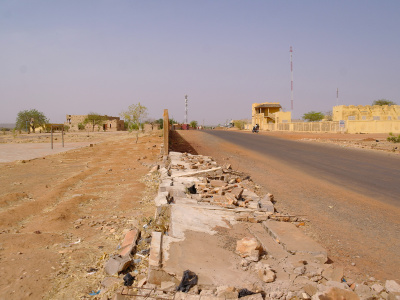
More on financing for African development from the Special Advisor on the post-2015 development agenda at UNECA
What's on this page
Policy-makers need to address the African technology gap with home-grown solutions that support innovation - building strong human and institutional capacities at the same time. The African debate on sustainable development, as shown at last week’s African Union-UNECA conference, pinpoints the need for enhanced investment in three key areas - industrialisation, agriculture and infrastructure development. In preparation for the Third International Conference on Financing for Development (FFD3) in July, African policy makers have been busy with Regional Consultations at the Conference of African Ministers of Finance, Planning and Economic Development in Addis Ababa and the ongoing negotiations on a Post-2015 international development framework & Financing for Development taking place in New York. Whilst these two events are taking place in different parts of the world, both are related to the Sustainable Development Goals (SDGs). A financial toolkit to implement a global development framework The July financing conference will feed into the September UN General Assembly Summit, where the nations of the world will adopt the new global development agenda that calls for transformative change to eradicate poverty, harness economic growth, and protect the environment. The "means to implement" these goals will largely rest on the FFD3 conference, as it will determine a global framework, based on agreed principles and mechanisms, for financing development ambitions, technology transfers to developing countries, capacity building for developing countries and other more ‘systemic’ issues - macroeconomic stability, coherent policies, partnerships with all the relevant players, monitoring progress and holding those responsible for implementation accountable. A new development agenda ‘post-2015’ will require considerable resources to be implemented on the ground - particularly in Africa. African Ministers declared that at the AU-UNECA conference that African negotiators need to do their utmost to secure Africa’s interests and concerns so that they are “reflected in the final outcome document, including in the areas of domestic resource mobilisation, international resources for development, international financial and technical cooperation, external debt, the international monetary and trading system, international trade, technology innovation, capacity-building and strong follow-up mechanisms”. Whatever the development framework will be, the agenda will require considerable resources for it to be implemented, particularly on the African continent. This is why FFD makes an interesting debate in Africa. Recent data confirms the success story for many African growth and development initiatives that use ‘home-grown’ sources of finance.
“The largest share of Africa’s infrastructure funding comes from national governments which is 65 percent and followed by private investors with 25 percent”
Dr. Abraham Tekeste The Ethiopian Minister for Finance and Economic Development, Dr. Abraham Tekeste, called for an integrated policy framework that sets a clear vision for mobilising diverse sources of finance. He stressed the fact that financing development today involves a blend of different sources of finance - including Official Development Assistance (critical for least developed countries, a majority of which are in Africa) private and public international funding and domestic resources amongst other various mechanisms. Curbing illicit financial flows, and re-directing them into development projects, can have an enormous potential. Still a role for aid - but also technology There is a case to be made for aid being focused on Least Developed Countries (LDCs) given the low base from which they would be implementing the SDGs and given the resource challenges they face. Amidst fear of a decline in support to such countries, African negotiators are calling for development partners to meet their commitments to LDCs, allowing a degree of predictable and stable finance, so as to allow some breathing room for other development planning. Many African countries have also welcomed the proposed ‘LDC Technology Bank’ to support transformation. The link between science, technology and innovation is critical, and more resources should be made available to facilitate technology transfers. Moving forward, African countries are expecting concrete and measurable commitments on all forms of financing. Whilst hopeful for action at the international level, they also expect individual governments to take action at home. The finance and sustainable development frameworks will apply to everyone, but African leaders also recognise that a global financing deal must reflect new realities of the global environment and new players in the development field - with a more assertive Africa. This is the reason why many Africans are expecting specific reference and commitments to Africa, including inclusive sustainable industrial development, structural economic transformation, agricultural productivity and research and a greater focus on infrastructure and energy.Aida Opoku-Mensah is Special Advisor on the Post-2015 Development Agenda at UNECA.
The views expressed here are those of the author and not necessarily those of ECDPM.